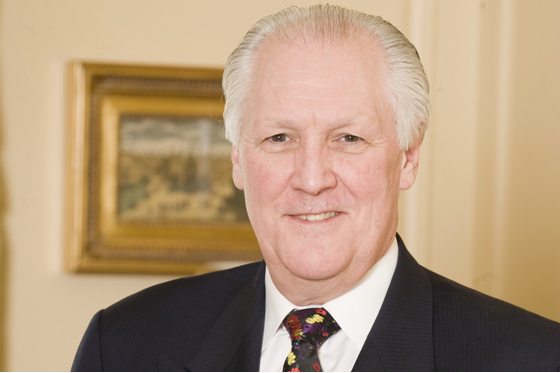As part of HOTELS 50th anniversary celebration, the editors asked leading operators about what’s important now and what they can’t ignore to remain successful.
HOTELS: What is the industry ignoring at its peril?
Bashar Wali, president, Provenance Hotels, Portland, Oregon: Humanity. There was a time when “ladies and gentlemen serving ladies and gentlemen” was a fresh, elegant and decidedly human insight. It spoke to an environment where elevated employee engagement led to elevated guest engagement. And it worked.
It worked so well that it became a mechanized system, branded, replicated and imposed throughout the industry. The dictum, once powerful, grew to become trite, and, frankly, a bit condescending.
Service is not a system. It requires systems, but being a successful hotelier today is about emotional intelligence, not conducting Gallup polls. Empathy is not a methodology; it’s a human quality. If you hire the right people, with the right qualities, you don’t need scripts.
Philip Wood, managing director, The Jefferson Hotel, Washington, D.C.: In my opinion, this is a double-edged sword. On the one side, if you ignore the speed and advancements in technology, you risk being ignored by generations that have grown up with computers for toys who have become dependent on electronics as their prime method of communication. The other side is that we forget that personal interaction is still at the core of hospitality.

H: What would you like to see hotel management stop doing?
Wood: In my career, I have managed everything from a Holiday Inn to the country’s top-rated luxury properties, and the successes in all of them have been establishing a strong esprit de corps. In recent years, there has been a trend for managers to become desk bound. Hotel managers must discipline themselves to spend at least equal time on face-to-face interaction, both in the front of house and behind the scenes.
H: What must hoteliers do to foster the development of leadership and entrepreneurship?
Jonathan Tisch, chairman, Loews Hotels & Resorts, New York: It is important that we as senior managers create an environment where we give young managers the tools to learn and grow. At the same time, we must listen to the issues that are important to them. Today, we truly need to listen and teach.
H: What is one management trend you are watching and why?
Wali: In the name of efficiency, hotels are increasingly making efforts to remove human interaction from the equation. The “shiny object syndrome” reached its full expression earlier this year with the launch of the first robot hotel in Japan. It’s not just a novelty; they’re planning on launching 1,000 similar hotels around the world. We want to give technology its healthy place in our hotels (and in our own lives), but this trend should be a little bit disturbing for any hotelier. Because we are, and always will be, in the people business.
Wood: More than a trend, it’s more of an evolution with human resources. Specifically, the young professional coming into the industry today has been brought up in an era of instant gratification. Too often, people are promoted too quickly, before they are ready, and this can create labor issues when they are not managed well due to inexperience.
H: What cultural imperatives are required today and going forward to succeed as a hotel manager?
Wali: Finger on the pulse, ear to the ground, hip like a piston, take your mark, make your mark, hurtle down the straightaway with a fury both beautiful and terrifying.
Stay ahead, keep asking, keep listening, keep learning, keep moving, keep changing, adapt, adopt, evolve, improve, repeat indefinitely.
Eric Danziger, CEO, Trump Hotels, New York: I often say that we are in the people business. Our industry is built on service and experience, not just on the rooms we have at our hotels. Today, more than ever, given all of the choices travelers have, it is critical that hoteliers focus on making guests feel connected and engaged with the on-property team, with the location and with the overall experience. This is, of course, in addition to understanding guest needs and preferences, and making their experience from start to finish as effortless, flawless and meaningful as possible. We have to listen to our guests and do our best to exceed their expectations. That’s been true from the very beginning, and it remains so today.
H: How do you make operations attractive again to budding hoteliers?
Danziger: I saw tremendous opportunity in this business as a young man just starting out and I continue to see the opportunity today. There’s incredible room for innovation; we are in need of creative new minds to lead our industry.
First, we must work to ensure that young people are aware of the opportunities that exist for them in hospitality, and second, we need to make the experience rewarding in every way. Too often, our business is a “me-too business,” and I still hear “that’s not how we do it.” There are fundamentals in our industry of course – people, service, experience – but there is tremendous opportunity to work differently and better.
Wali: Operations will never provide the attraction. This industry either connects with your soul or it doesn’t. If it does, it takes you over. It becomes your calling and drives everything you do – including operations. If hospitality is just a job for you, you won’t last. And you certainly won’t be working for me. We may not be curing cancer, but we are elevating the human experience, if only for one night. Real hoteliers understand this.

